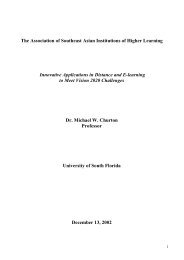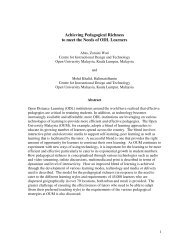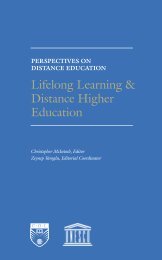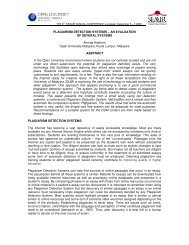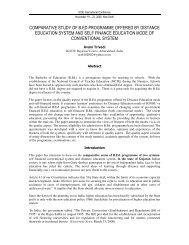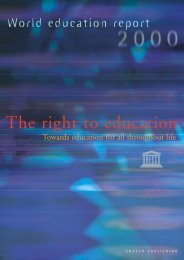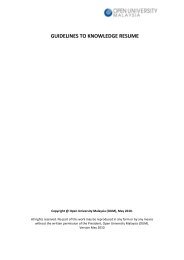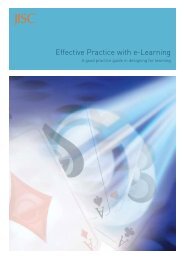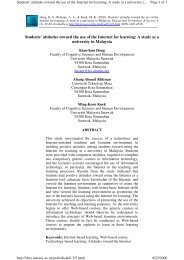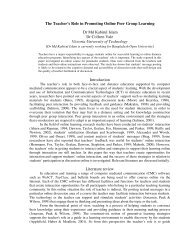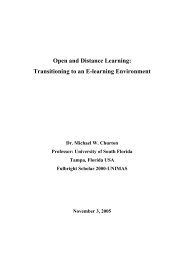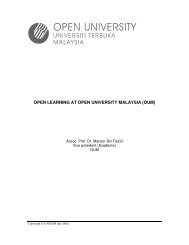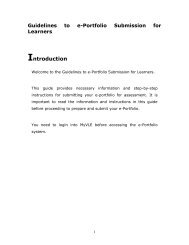e-learning readiness - Asia Pacific Region - Open University Malaysia
e-learning readiness - Asia Pacific Region - Open University Malaysia
e-learning readiness - Asia Pacific Region - Open University Malaysia
- No tags were found...
You also want an ePaper? Increase the reach of your titles
YUMPU automatically turns print PDFs into web optimized ePapers that Google loves.
1. The promotion of information fluency toward the right ofaccess to E- <strong>learning</strong> for all <strong>Malaysia</strong>ns (p.27).2. The creation of windows of opportunity to develop newmodes of <strong>learning</strong> and innovative <strong>learning</strong> strategies based onthe new information and communication technologies (p.29).3. The development of indigenous content so that E-<strong>learning</strong>shall be imbued by <strong>Malaysia</strong>n values, as it further infusesthem into <strong>Malaysia</strong>n Society. E- Learning will be driven byindigenous technology derived from national R&D (p.30).The systematic implementation of the above imperatives is deemedcrucial as there appears to be a short supply of <strong>Malaysia</strong>n professionalswith ICT skills (http://www.opt-init.org/framework/pages/2.3.html).Further, there is a need to cultivate and train more specialists in E-<strong>learning</strong>, particularly instructional designers and E-<strong>learning</strong> contentproviders. Further, there is a need to develop more adequateinfrastructure and to ensure the availability of broadband access to awider spectrum of the society. Bearing this in view, this study on E-<strong>learning</strong> <strong>readiness</strong> in <strong>Malaysia</strong> has been carried out to provide input on<strong>Malaysia</strong>n <strong>readiness</strong> in a number of pertinent areas.1.3 Research QuestionsThe study focused on four groups of individuals: policy makers,providers, enablers and receivers of E-<strong>learning</strong> who were directly orindirectly involved in E-<strong>learning</strong> at the tertiary level of education as wellas in training at the workplace. In particular, the study aimed to answerthe following questions:1. To what extent are policy makers enabling or ready toenable E-<strong>learning</strong> programmes within their respectiveorganisations?2. To what extent are providers (private corporations,organisations, tertiary educational institutions and majortechnology providers) ready to embark or have embarkedon E-Learning programmes?3. To what extent are enablers (tutors, lecturers and trainers)ready to deliver E-<strong>learning</strong> programmes?4. To what extent are receivers (learners and trainees) readyfor E-Learning?The section below describes the methodology used in the study.Operational definitions of terms associated with the study are alsoincluded.Joint Study by MEWC and OUM 6



